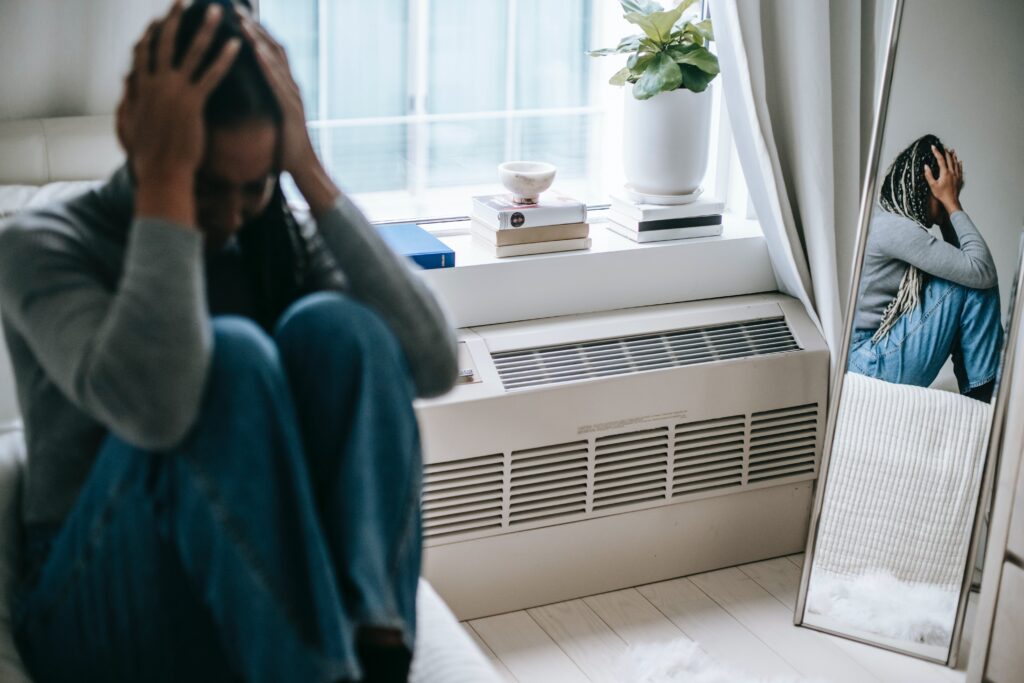Losing a loved one is never easy; the feeling of separation can ruin your world and trigger depression due to separation. Whatever the reason, some people quickly accept a breakup and move on, but others may experience depression.
It can be a heartbreaking time, and it can feel like your world is falling apart. While sadness and heightened emotional breakdowns are common reactions after a breakup, it’s important to recognize the symptoms of depression and treat the condition.
Differences In Unhealthy and Depressive Symptoms Due to Separation
Because depression symptoms can range from mild to severe, it’s often difficult to know whether sadness and grief is a normal reaction to a breakup or a sign of something more serious, like depression.
How Do You Know If Any Emotion You Feel Is a Normal Reaction?
There are healthy and unhealthy signs of separation. Knowing the difference between these symptoms can help you determine if you are experiencing depression. Healthy breakup symptoms can include anger and frustration, crying and sadness, fear, insomnia, loss of interest in activities.
These symptoms are disturbing. But if you’re experiencing normal reactions to a loved one’s separation, your emotional state will gradually improve as you adjust to life without your loved one. The length of time it takes to heal varies from person to person, so be patient.
It’s normal to feel sad and hurt after a breakup, but if your symptoms don’t start to improve after a few weeks, or if they get worse, you should talk to a doctor. To be diagnosed with depression, you must have at least five of these symptoms over a period of at least two weeks.
Feeling sad, empty, or hopeless every day, not enjoying activities you used to enjoy, weight loss and loss of appetite, or increased appetite and weight gain, sleeping too little or too much, pacing or hand twitching, being significantly slower in talking or moving, feeling like you don’t have the energy to work, feeling worthless, having trouble paying attention or making decisions, having thoughts about death, which Also called suicidal ideation.
If your mind is under the influence of such negative thoughts, then refer here for immediate expert consultation
Medical Treatment of Depression due to Separation
If your symptoms do not begin to improve within two to three weeks, see a doctor. Based on your symptoms, your doctor may prescribe an antidepressant to help you cope with your emotions. Understand the risks of taking antidepressants. Some medications can cause side effects on sex, increased appetite, insomnia, and weight gain.
Depending on the severity of depression after a loved one’s separation, your doctor may recommend counselling or psychotherapy to help you deal with your feelings, especially if you’ve had suicidal thoughts.
Home Remedies for Depression due to Separation
Ways to deal with depression that do not involve the help of experts can be something like this. Choose the best experts to get complete relief from depression.
Dealing with depression often involves a combination of professional help and personal strategies. While it’s essential to consult experts for comprehensive relief, incorporating the following home remedies can complement your efforts in managing and alleviating depressive symptoms:
Regular Exercise:
Engage in physical activity to stimulate the release of endorphins, the body’s natural mood enhancers. Aim for at least thirty minutes of exercise, such as walking, jogging, or yoga, at least three times a week.
Mindful Meditation:
Practice mindfulness meditation to cultivate awareness and focus on the present moment. This can help reduce stress, anxiety, and negative thought patterns associated with depression.
Healthy Sleep Habits:
Prioritize a consistent sleep schedule by going to bed and waking up at the same time every day. Create a calming bedtime routine and ensure your sleep environment is conducive to rest.
Nourishing Diet:
Opt for a balanced and nutritious diet that includes whole foods rich in vitamins and minerals. Omega-3 fatty acids, found in fish and certain nuts, may have mood-stabilizing effects.
Hobbies and Activities:
Engage in activities you enjoy and that bring a sense of accomplishment. Whether it’s reading, painting, gardening, or any other hobby, staying busy can help distract from negative thoughts.
Social Connection:
Foster relationships with friends and family. Share your feelings with trusted individuals who can provide emotional support. Social connections can contribute to a sense of belonging and reduce feelings of isolation.
Sunlight Exposure:
Spend time outdoors to soak in natural sunlight. Sunlight exposure is linked to the production of serotonin, a neurotransmitter that influences mood.
Herbal Supplements:
Consult with your doctor about herbal supplements known for their potential mood-boosting properties, such as St. John’s Wort. Ensure these supplements do not interfere with any prescribed medications.
Aromatherapy:
Experiment with aromatherapy using essential oils like lavender, chamomile, or citrus scents. Certain aromas may have a calming effect and promote relaxation.
Journaling:
Express your thoughts and emotions through journaling. Writing can be a therapeutic outlet, helping you gain insight into your feelings and identify patterns.
Remember, while these home remedies can be beneficial, they are not substitutes for professional guidance. If your depressive symptoms persist or worsen, seeking the expertise of mental health professionals is crucial for comprehensive and tailored support. Choose the best experts to guide you on your journey toward complete relief from depression.
You can also explore alternative treatments for depression, such as acupuncture, massage therapy, and meditation.
Conclusion:
Navigating the turbulent waters of separation from a loved one can be an emotionally challenging journey, often accompanied by a spectrum of reactions. While some individuals successfully cope with the pain, others may find themselves grappling with symptoms that extend beyond the realm of normal grief – symptoms indicative of depression.
It is crucial to distinguish between healthy responses to a breakup and signs of clinical depression. Common emotional reactions include anger, sadness, fear, insomnia, and a temporary loss of interest in activities.
These reactions, though distressing, generally ameliorate over time as one adapts to life without their loved one. However, if these symptoms persist or worsen after a few weeks, it is imperative to seek professional help.
Clinical depression is characterized by a constellation of symptoms persisting for at least two weeks. These may encompass persistent feelings of sadness, loss of interest in once-enjoyable activities, changes in appetite and sleep patterns, slowed cognitive and physical functioning, and even thoughts of death or suicide. Recognizing these signs is crucial for timely intervention.
Medical treatment for depression may involve antidepressant medication, counseling, or psychotherapy, depending on the severity of symptoms.
It is essential to consult with a healthcare professional to assess the most suitable course of action. Additionally, various home remedies can complement medical interventions, such as engaging in regular exercise, cultivating hobbies, improving sleep quality, and exploring natural supplements like omega-3 fatty acids.
While the path to healing is unique for each individual, seeking support from experts and loved ones is paramount. The journey through separation-induced depression may be arduous, but with the right resources and resilience, one can gradually rebuild their emotional well-being and emerge from the shadows of despair into a brighter, more hopeful future.








